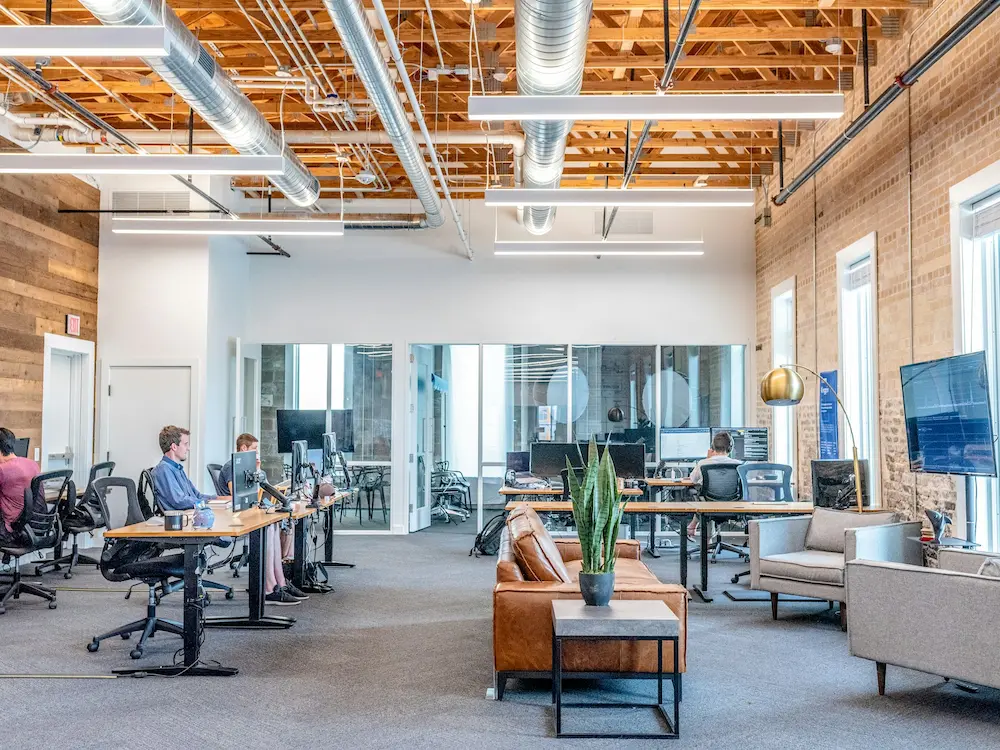Maintaining a commercial property might not be the most glamorous aspect of running a business, but it is undeniably crucial. The condition of your business premises can significantly impact your brand image, employee morale, and even your bottom line. In this article, we delve into four compelling reasons why business property maintenance should never be overlooked.
Aesthetics Matter More Than You Think
First impressions are lasting impressions, and this couldn’t be truer when it comes to your business property. The appearance of your premises speaks volumes about your commitment to professionalism and attention to detail. A well-maintained exterior and a tidy interior create an inviting atmosphere for clients, customers, and even potential business partners. Neglecting property maintenance can lead to a shabby and unprofessional image, potentially turning away clients before they even step through the door. Regular upkeep, including landscaping, exterior painting, and signage maintenance, contributes to a positive and lasting first impression.
Moreover, in the age of online reviews and social media, the perception of your business starts long before a customer sets foot inside. Potential clients often research businesses online before deciding to engage with them. If your property appears neglected or rundown in online photos, it can deter prospective customers, affecting your reputation and potentially causing a loss of business opportunities. To maintain a positive public image, it’s essential to invest in the appearance of your business property. This not only includes the visible exterior but also extends to the cleanliness and organization of the interior. A well-maintained property sends a message to your clients and customers that you care about your business, instilling confidence in your professionalism and commitment to quality.
Employee Productivity Hinges on a Comfortable Environment
The work environment directly influences employee morale and productivity. A poorly maintained workplace can negatively impact the well-being of your staff, leading to decreased motivation and job satisfaction. Leaky roofs, malfunctioning HVAC systems, or broken windows can create discomfort and distractions, hindering the concentration of your workforce.
Imagine trying to focus on a critical task with a persistent drip from the ceiling or working in an office where the temperature is either too hot or too cold due to a faulty HVAC system. These seemingly minor issues can add up, significantly affecting employee performance and satisfaction. Investing in routine property maintenance ensures a safe, comfortable, and efficient working environment. Promptly addressing issues such as plumbing leaks, electrical problems, or heating and cooling malfunctions contributes to a conducive workplace that fosters employee satisfaction and productivity.
Beyond the physical comfort of your employees, a well-maintained workspace also contributes to their mental well-being. Cluttered or poorly maintained spaces can create stress and reduce the overall morale of your workforce. On the other hand, a clean, well-organized, and properly maintained environment promotes a positive atmosphere, boosting employee morale and, consequently, their productivity. In addition to the immediate impact on productivity, a comfortable and well-maintained workplace can also play a role in employee retention. High employee turnover can be costly for businesses, both in terms of recruitment and training expenses. A workplace that prioritizes maintenance and employee comfort is more likely to retain valuable talent, contributing to long-term stability and success.
Legal and Safety Compliance Cannot Be Ignored
Overlooking property maintenance can have serious legal implications. Local authorities enforce building codes and safety regulations that mandate businesses to maintain their properties to certain standards. Failure to adhere to these regulations can result in fines, legal action, or even forced closure of the premises. Routine inspections, repairs, and upgrades help ensure that your business property complies with all relevant codes and safety standards. This not only protects you from legal consequences but also guarantees the safety of your employees and customers. Regular maintenance can prevent accidents and injuries, demonstrating your commitment to a secure working environment.
For example, fire safety is a critical aspect of building codes that businesses must adhere to. Neglecting the maintenance of fire suppression systems, emergency exits, and other safety features can pose significant risks. Regular inspections and maintenance of these systems not only ensure compliance with regulations but also contribute to the safety and well-being of everyone in the building. In addition to legal compliance, property maintenance plays a vital role in risk management. Identifying and addressing potential hazards proactively can prevent accidents and mitigate liabilities. This proactive approach not only protects your business legally but also fosters a culture of safety, instilling confidence in employees and customers alike.
Long-Term Cost Savings Through Preventive Maintenance
While it might seem like an additional expense in the short term, investing in preventive maintenance can lead to significant cost savings over the long term. This is why the team behind a Commercial Roofing Ashtabula Ohio company recommends addressing issues before they escalate into major problems, preventing costly repairs or replacements. Regular inspections can identify potential problems early on, allowing for timely and cost-effective solutions. For instance, fixing a small roof leak promptly can prevent water damage that might necessitate a full roof replacement. Similarly, maintaining HVAC systems can enhance energy efficiency, reducing utility costs. By adopting a proactive approach to property maintenance, businesses can avoid the financial strain associated with major repairs or renovations.
Preventive maintenance not only helps avoid costly repairs but also extends the lifespan of your property’s components and systems. A well-maintained building, from its structural elements to its mechanical systems, is less likely to experience sudden failures or breakdowns. This longevity not only saves on replacement costs but also ensures that your business operations are not disrupted due to unexpected issues. Furthermore, a well-maintained property retains its value over time. Should you decide to sell or lease your business premises in the future, a property with a documented history of regular maintenance commands a higher market value. This potential return on investment adds another layer to the financial benefits of prioritizing property maintenance.

In conclusion, the importance of business property maintenance cannot be overstated. It goes beyond aesthetics and extends to the well-being of your employees, legal compliance, and long-term financial stability. Incorporating a comprehensive property maintenance strategy into your business plan is not just an investment in appearances but a strategic move to secure the success and longevity of your business.













